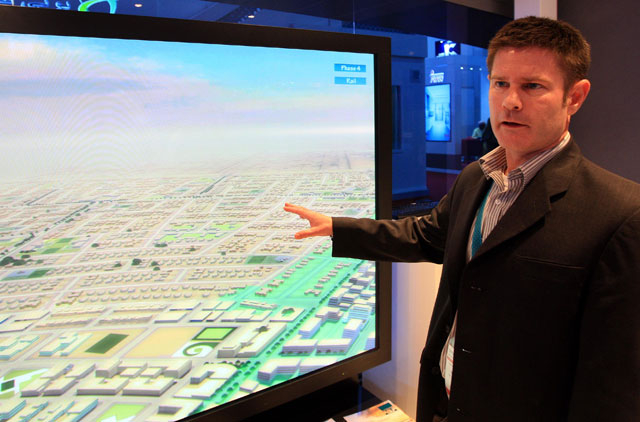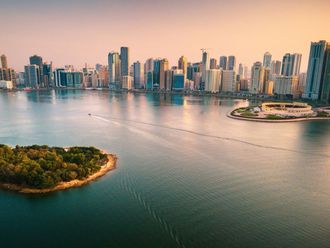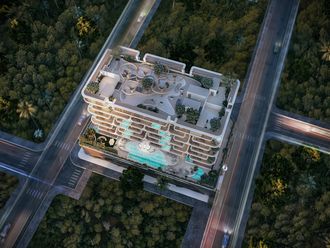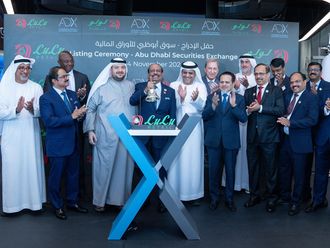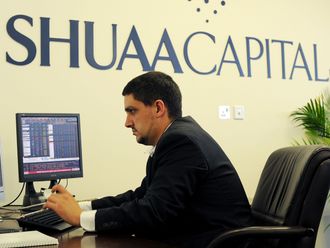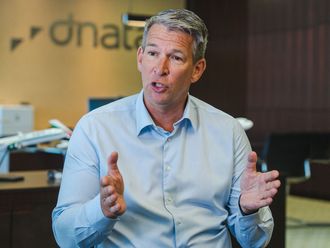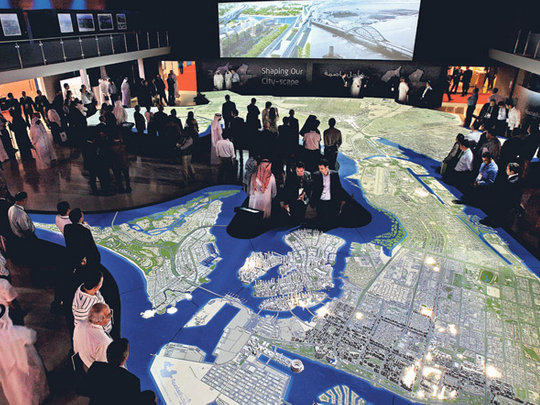
Abu Dhabi: As part of efforts to reduce traffic congestion and build an efficient transportation system, the Abu Dhabi government is expected to spend $68 billion (Dh249.7 billion) on public transport schemes between now and 2015.
A large area of focus in Abu Dhabi's transportation plan is the introduction of more than 40 metro stations which will handle 40,000 to 70,000 travellers per day.
The Abu Dhabi Urban Street Design Manual has been developed by the Abu Dhabi Urban Planning Council (UPC) in cooperation with Abu Dhabi's Department of Transport, (DoT), to lessen congestion and reduce dependence on motor vehicles by implementing a public transit network including high speed rail and rapid transit options such as trams and buses.
Innovative design
In addition, a system of new and redesigned streets will emphasise high quality urban design and cater to all modes of transport including cycle tracks and bicycle lanes.
In line with UPC's 2030 vision to create innovative street designs that will provide a choice of movement by walking, cycling and public transport modes, the DoT expects to invest about $82 billion in Abu Dhabi's transport network, including the construction of roads and a light rail.
The $7 billion Abu Dhabi Metro monorail track project will be 131 kilometres long, with most of the network expected to be underground, mainly connecting the Central Business District (downtown Abu Dhabi), with Sowwah Island, Reem Island, Saadiyat Island, Yas Island, Abu Dhabi International Airport and Masdar, Capital City District, Emerald Gateway, Zayed Sports City and the Abu Dhabi National Exhibition Centre.
Each monorail station is expected to handle 15 two-coach trains travelling at five-minute intervals.
Bill Lashbrook, UPC Transport Planning Manager, told Gulf News that among the 40 stations to be scattered across the capital city, two of the stations will be located in downtown Abu Dhabi and in the Central District, strategically located in the Capital District, one of UPC's most ambitious urban development projects, meant to serve as a second downtown for Abu Dhabi residents.
The Capital District will be a sustainable, authentic and modern city, with an area of 45 square kilometres, and a projected population of 370,000.
The Central District metro station will connect to key areas of the Abu Dhabi metropolitan areas. Once operational, later phases will link the Abu Dhabi Metro to the Dubai Metro and to other cities across the UAE and to other GCC states.
"We're currently working with main developers such as Reem Island, Aldar and Mubadala regarding convenient road transportation across Abu Dhabi, starting initially with the Central District, where the metro trains, expected to travel 90 km/h, will be integrated into the national railway system," said Lashbrook.
The UPC is also in the process of preserving corridors for space in order to accommodate the national rail system between Abu Dhabi and Dubai, which is expected to travel at speeds of up to 200 km/h.
"We expect two to three station stops between Abu Dhabi and Dubai. Once the railway plan is operational, there will be less traffic flow, less dependence on cars, and affordable transportation options," Lashbrook said.
Abu Dhabi's transport authority may revise its schedule to spend an estimated Dh300 billion ($81.68bn) on building major roads, bridges and rail projects over the next 20 years as it awaits the latest word on the emirate's population. Abdullah al Otaiba, the chairman of the Department of Transport (DoT), said he was awaiting the findings of a study from the Urban Planning Council on population growth in the emirate.
- 2011 Construction expected to start
- 2015 First segment of the project expected to be completed
- 2016 Project expected to be completed
Results awaited
Abu Dhabi's transport authority may revise its schedule to spend an estimated Dh300 billion ($81.68 billion) on building major roads, bridges and rail projects over the next 20 years as it awaits the latest word on the emirate's population. Abdullah Al Otaiba, chairman of the Department of Transport, said he was awaiting the findings of a study by the Urban Planning Council on population growth in the emirate.
Timeline
- The Middle East has been estimated to spend more than $100 billion on rail projects.
- Abu Dhabi Metro Rail schedule:2010: Planning and study expected to start;2011: Construction expected to start;2015: First segment of the project expected to be completed; and2016: Project expected to be completed.


